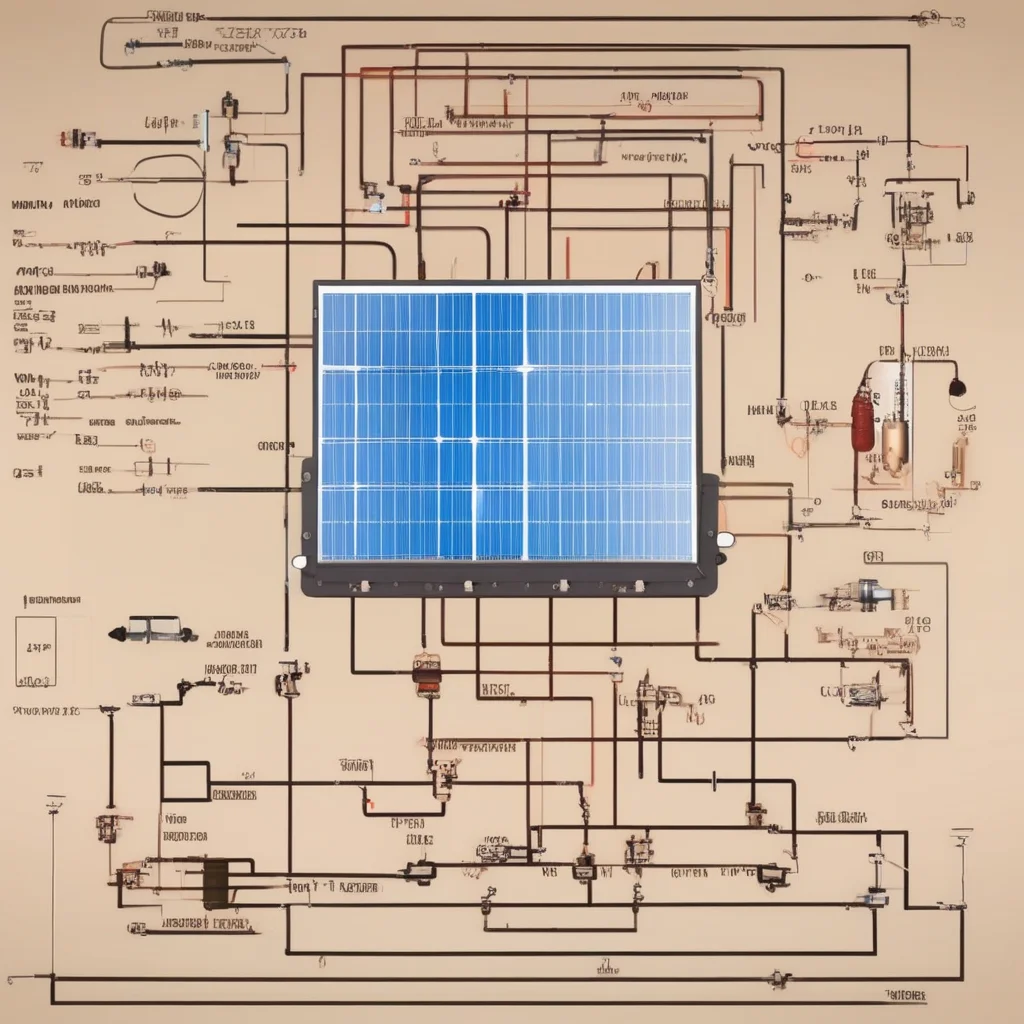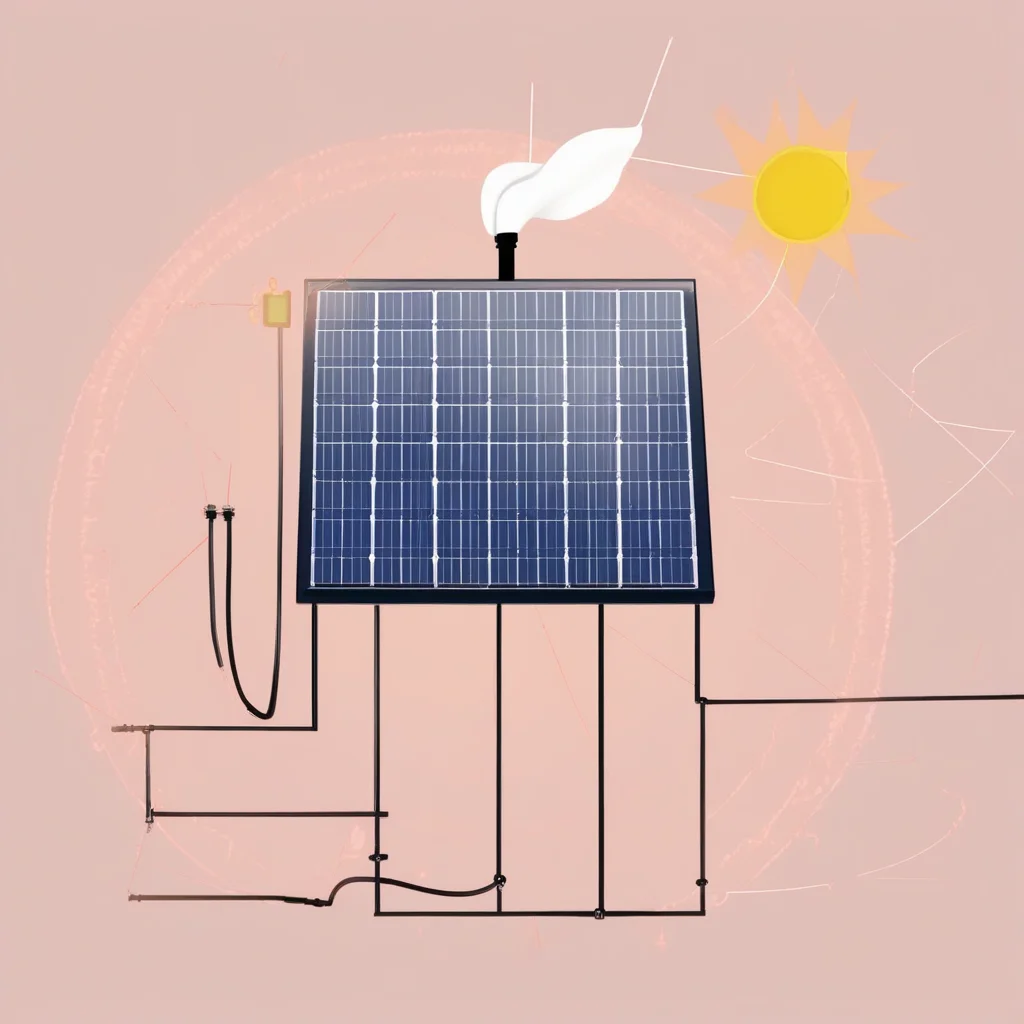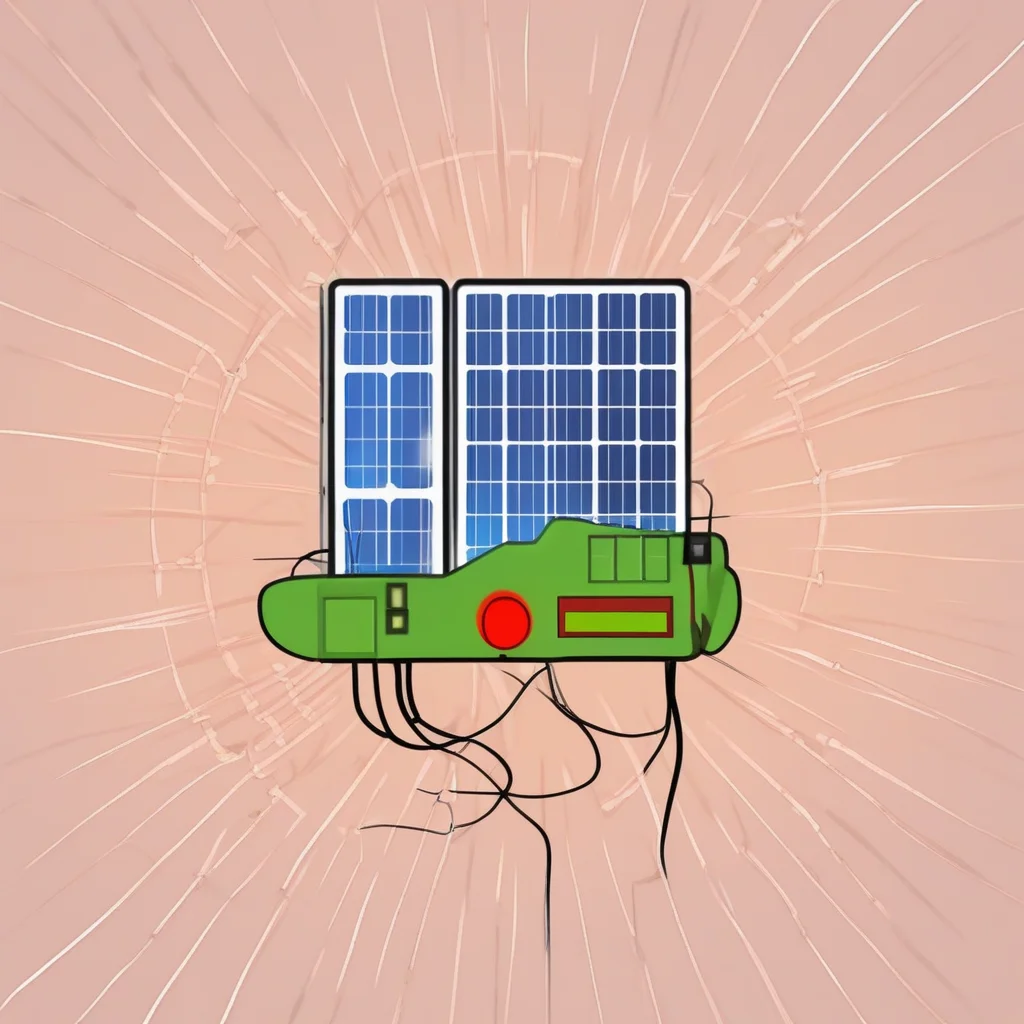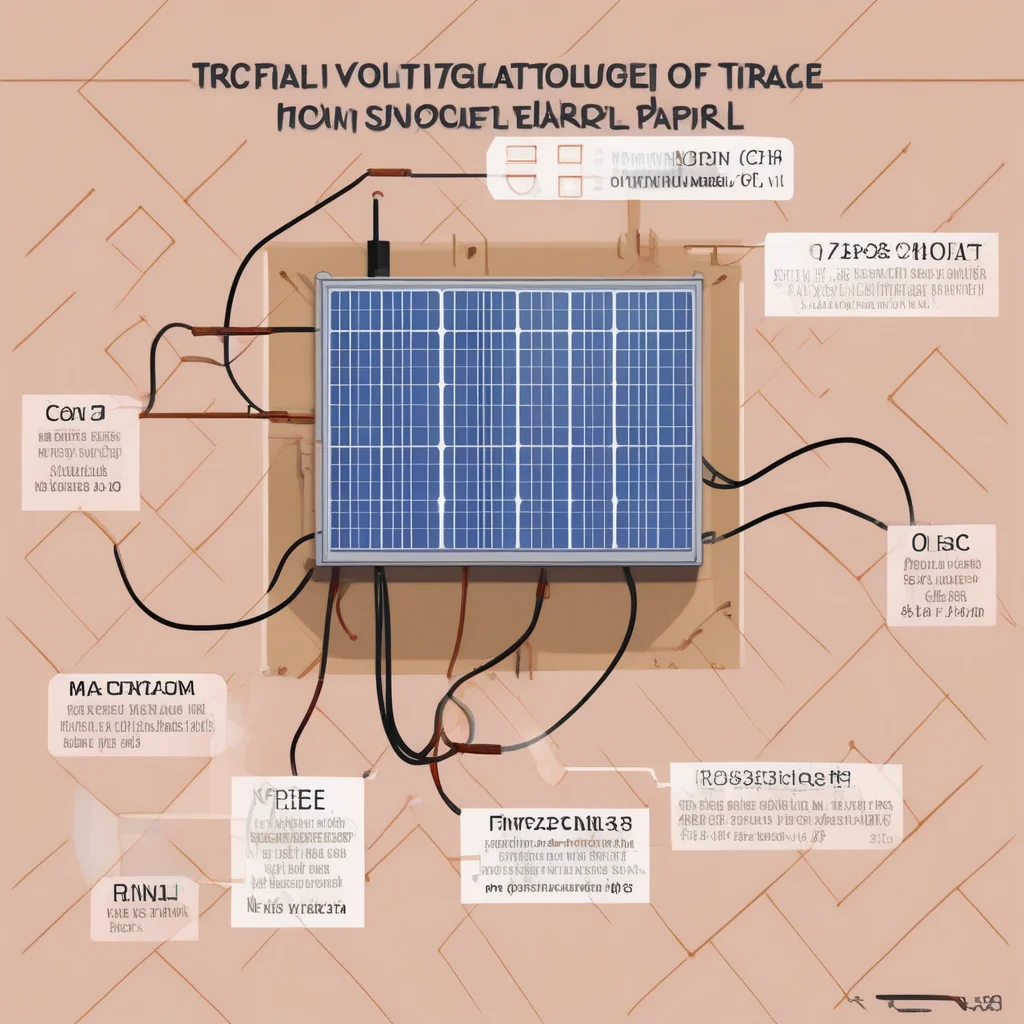Introduction
Solar panels are like magical devices that turn sunlight into electricity. But, how do they do that? One important thing to understand is the voltage of solar panels. Voltage is like the “push” that makes electricity flow. In this guide, we’ll explore what typical voltage means for solar panels and why it’s important. Don’t worry if you’re not sure what voltage is yet—we’ll explain everything step by step!
What is Voltage?
Voltage is a measure of how strong the push is for electricity to move through wires. Think of it like water pressure in a hose. The higher the pressure, the more water can flow out. For solar panels, the voltage helps us know how much electricity they can produce and how they fit into different electrical systems.
Typical Voltage of Solar Panels

Solar panels come in different sizes and types, so their voltage can vary. Most solar panels for home use have a typical voltage of around 18 to 22 volts. This is like the “normal” range for solar panels that you might find on your roof or in a solar garden.
Here’s a bit more detail:
- Standard Panels: Many standard solar panels produce about 18 volts when they’re working at their best.
- High-Efficiency Panels: Some newer, high-efficiency panels might produce up to 22 volts.
- Small Panels: Small solar panels, like those used in calculators or garden lights, might have lower voltages.
Understanding the typical voltage helps in choosing the right solar panels for your home or gadget.
Product Information
When selecting solar panels, it’s essential to understand their key features. Here’s a quick look at what you should know:
Key Features of Solar Panels
| Feature | Description |
|---|---|
| Voltage Range | Most panels operate between 18 to 22 volts. |
| Panel Size | Panels come in various sizes, from small ones for gadgets to large ones for roofs. |
| Efficiency | How well a panel converts sunlight into electricity. |
| Durability | How long the panel lasts and how it handles different weather conditions. |
| Type of Panel | Different types include monocrystalline, polycrystalline, and thin-film. |
| Installation | Panels can be installed on roofs, ground mounts, or even portable setups. |
| Cost | Varies based on size, efficiency, and brand. |
| Warranty | Most panels come with a warranty that guarantees their performance over time. |
Why Voltage Matters

Solar Panel Systems
In a solar power system, voltage is crucial because it helps determine how the panels are connected. Panels can be connected in series or parallel, which affects the overall voltage and power output. Here’s how:
- Series Connection: Increases voltage while keeping the current the same. It’s like adding more “push” to the electricity flow.
- Parallel Connection: Increases current while keeping the voltage the same. It’s like adding more paths for the electricity to flow through.
Choosing the Right Voltage
Different systems need different voltages. For example, a solar system for a home might need panels with a higher voltage to match the house’s electrical system. Understanding the typical voltage helps in picking the right panels that fit well with other electrical components.
Solar Panel Performance

The performance of a solar panel can be affected by its voltage. Higher voltage panels can be more efficient, especially in larger installations. They can also handle more power without overheating, which is important for long-term reliability.
FAQs
1. What is the typical voltage of a solar panel?
The typical voltage of a solar panel is around 18 to 22 volts. This range is common for residential panels and helps determine how much power they can produce.
2. Why is the voltage of solar panels important?
The voltage of solar panels is important because it affects how they fit into a solar power system. It helps in choosing the right panels and ensures they work well with other electrical components.
3. Can the voltage of solar panels change?
Yes, the voltage can vary depending on the type of panel and how much sunlight it’s receiving. For example, a panel might produce more voltage when it’s sunny and less when it’s cloudy.
4. How does solar panel voltage affect my home’s power system?
The voltage of solar panels needs to match your home’s power system to work correctly. If the voltage is too high or too low, it can cause problems with your electrical system.
5. Are there different types of solar panels with varying voltages?
Yes, there are different types of solar panels, and they can have varying voltages. High-efficiency panels often have higher voltages, while smaller panels for gadgets might have lower voltages.
Conclusion
Understanding the typical voltage of solar panels helps us make smart choices about using solar power. Whether you’re thinking about adding solar panels to your home or just curious about how they work, knowing about voltage is a great start. Remember, solar panels with the right voltage can help you get the most out of your solar power system. With this knowledge, you’re now ready to dive deeper into the world of solar energy and see how it can brighten up your life!
Feel free to explore more about solar panels and their voltage to become even more knowledgeable. The sun is a powerful resource, and with the right information, you can harness its energy efficiently and effectively!

